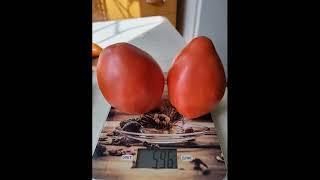Farming, also known as agriculture, is the practice of cultivating crops, raising livestock, and producing food, fiber, and other resources for human consumption and use. It is one of the oldest and most essential activities in human history, dating back thousands of years. Farming plays a crucial role in sustaining human life, providing food security, supporting economies, and shaping landscapes around the world.
Farming methods and techniques vary widely depending on factors such as climate, soil type, topography, and cultural practices. However, modern agriculture often involves the use of advanced technology, machinery, and scientific knowledge to maximize productivity and efficiency while minimizing environmental impact.
There are several types of farming, including:
Crop Farming: Crop farming involves the cultivation of plants for food, fiber, or other purposes. Major crops include grains (such as wheat, rice, and corn), fruits, vegetables, oilseeds, and fiber crops (like cotton). Crop farming practices range from traditional methods, such as hand planting and irrigation, to modern techniques like precision agriculture and genetic engineering.
Livestock Farming: Livestock farming entails the raising of animals for meat, milk, eggs, wool, leather, and other products. Common livestock species include cattle, pigs, poultry (chickens, ducks, turkeys), sheep, and goats. Livestock farming practices vary widely, from free-range and pasture-based systems to intensive confinement operations, each with its own environmental and ethical considerations.
Mixed Farming: Mixed farming involves a combination of crop cultivation and livestock rearing on the same farm. This integrated approach can provide multiple sources of income and improve resource utilization by recycling nutrients and organic matter between crops and animals.
Specialized Farming: Specialized farming focuses on specific crops or livestock species tailored to local conditions and market demands. Examples include vineyards for wine production, orchards for fruit cultivation, aquaculture for fish farming, and specialty crops like coffee, tea, and spices.
Organic Farming: Organic farming emphasizes sustainable practices that minimize the use of synthetic inputs such as pesticides, fertilizers, and genetically modified organisms (GMOs). Organic farmers rely on natural methods like crop rotation, composting, and biological pest control to maintain soil fertility and ecosystem health.
Farming faces numerous challenges in the 21st century, including climate change, water scarcity, soil degradation, biodiversity loss, pests and diseases, market fluctuations, and socioeconomic issues like rural depopulation and farmer livelihoods. Addressing these challenges requires innovation, collaboration, and sustainable farming practices that balance economic viability with environmental stewardship and social responsibility.
Overall, farming remains a vital cornerstone of human civilization, providing nourishment, livelihoods, and cultural heritage to communities worldwide. As societies continue to evolve, the future of farming will likely involve greater emphasis on sustainability, resilience, and equitable access to resources for current and future generations.
Farming methods and techniques vary widely depending on factors such as climate, soil type, topography, and cultural practices. However, modern agriculture often involves the use of advanced technology, machinery, and scientific knowledge to maximize productivity and efficiency while minimizing environmental impact.
There are several types of farming, including:
Crop Farming: Crop farming involves the cultivation of plants for food, fiber, or other purposes. Major crops include grains (such as wheat, rice, and corn), fruits, vegetables, oilseeds, and fiber crops (like cotton). Crop farming practices range from traditional methods, such as hand planting and irrigation, to modern techniques like precision agriculture and genetic engineering.
Livestock Farming: Livestock farming entails the raising of animals for meat, milk, eggs, wool, leather, and other products. Common livestock species include cattle, pigs, poultry (chickens, ducks, turkeys), sheep, and goats. Livestock farming practices vary widely, from free-range and pasture-based systems to intensive confinement operations, each with its own environmental and ethical considerations.
Mixed Farming: Mixed farming involves a combination of crop cultivation and livestock rearing on the same farm. This integrated approach can provide multiple sources of income and improve resource utilization by recycling nutrients and organic matter between crops and animals.
Specialized Farming: Specialized farming focuses on specific crops or livestock species tailored to local conditions and market demands. Examples include vineyards for wine production, orchards for fruit cultivation, aquaculture for fish farming, and specialty crops like coffee, tea, and spices.
Organic Farming: Organic farming emphasizes sustainable practices that minimize the use of synthetic inputs such as pesticides, fertilizers, and genetically modified organisms (GMOs). Organic farmers rely on natural methods like crop rotation, composting, and biological pest control to maintain soil fertility and ecosystem health.
Farming faces numerous challenges in the 21st century, including climate change, water scarcity, soil degradation, biodiversity loss, pests and diseases, market fluctuations, and socioeconomic issues like rural depopulation and farmer livelihoods. Addressing these challenges requires innovation, collaboration, and sustainable farming practices that balance economic viability with environmental stewardship and social responsibility.
Overall, farming remains a vital cornerstone of human civilization, providing nourishment, livelihoods, and cultural heritage to communities worldwide. As societies continue to evolve, the future of farming will likely involve greater emphasis on sustainability, resilience, and equitable access to resources for current and future generations.
- Категория
- Севооборот
Комментариев нет.




